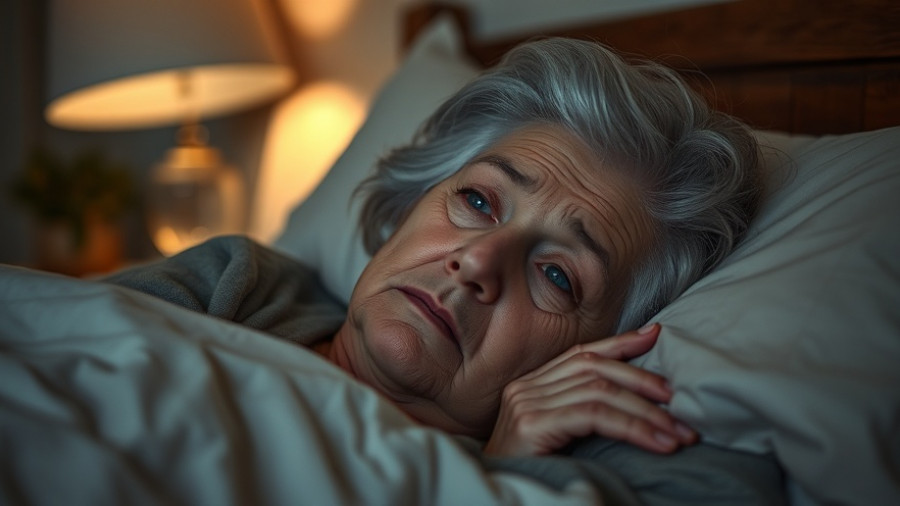
Understanding Sleep Disruptions During Menopause
As women transition through menopause, many experience profound changes not only in their physical health but also in their sleep patterns. Sleep disturbances during this phase are almost universal, affecting up to 85% of menopausal women. These disturbances often stem from hormone fluctuations, particularly the decline of estrogen and progesterone, which play key roles in regulating sleep-wake cycles and body temperature.
The Impact of Hormonal Changes
When estrogen levels drop during menopause, women can face challenges such as hot flashes and night sweats, leading to frequent awakenings and an overall decrease in sleep quality. According to the National Sleep Foundation, nearly 61% of menopausal women report significant sleep issues. This creates a cycle of fatigue and cognitive difficulties, affecting mood and overall well-being.
Natural Remedies for a Good Night's Sleep
Fortunately, there are various strategies women can implement to enhance their sleep quality during this transitional period. Creating a calming bedtime ritual is essential. Consider engaging in gentle yoga or reading a book to signal your body that it's time to wind down.
Another necessary habit to adopt is limiting exposure to screens before bedtime, as the blue light emitted by phones and tablets can disrupt melatonin production. Many experts recommend minimizing screen time at least one hour before sleep.
Additionally, lifestyle changes can significantly influence sleep quality. Keeping the bedroom cool, wearing loose cotton clothes, and avoiding large meals or spicy foods near bedtime can vastly improve your chances of attaining restful sleep.
Supplemental Support
Many products specifically designed for menopausal women, such as MenoMe's Merry Peri and Perky Post supplements, offer targeted support. These products contain ingredients like Affron® to help with mood stabilization and promote deeper sleep. They can be powerful allies in combating sleep disturbances related to menopause.
Consulting Healthcare Experts
If lifestyle changes and supplements do not yield sufficient improvements, it may be necessary to consult with a healthcare professional. Cognitive Behavioral Therapy (CBT) has been shown to be effective in treating chronic insomnia, helping women recognize unhealthy sleep patterns and develop constructive habits.
Hormone Replacement Therapy (HRT) remains a common treatment option, providing relief for those struggling with severe symptoms. It is crucial, however, to discuss the potential benefits and risks with a healthcare provider to determine the best course of action for your individual needs.
Embracing Change for Better Sleep
While navigating menopause can be challenging, particularly when it affects sleep, there is hope. Understanding the causes of sleep disturbances and actively seeking solutions can greatly enhance your quality of life. Remember, sleep is not just a luxury—it's an essential component of your health and well-being. With the right support, restful nights are achievable again.
To take charge of your sleep journey, explore targeted supplements and consult with healthcare professionals to find personalized strategies that work for you.
 Add Row
Add Row  Add
Add 




Write A Comment